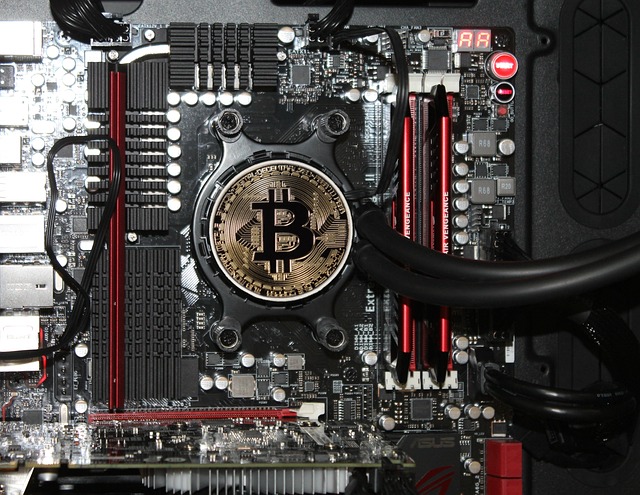Global regulatory bodies are rapidly adapting to the cryptocurrency landscape as quantum computing poses a threat to traditional security. They're implementing new measures like enhanced KYC, stricter AML protocols, and closer scrutiny of DeFi platforms to address privacy, transparency, and illicit activities. Key jurisdictions like the US, Switzerland, Singapore, EU, Japan, and others are leading in setting international standards for crypto security, focusing on quantum-resistant algorithms and coordinated regulation of digital asset exchanges and blockchain technology.
The cryptocurrency landscape is rapidly evolving, with regulatory frameworks globally adapting to this decentralized phenomenon. This article provides an in-depth overview, exploring key aspects from the initial response to cryptocurrencies to future trends. We analyze traditional financial regulations and their challenges in addressing unique crypto characteristics. Furthermore, we delve into quantum computing’s potential security threats and countermeasures, emphasizing the need for robust security in blockchain technology. Additionally, market integrity, investor protection, taxation, and CBDCs are discussed, offering insights into regulatory adaptability and global variations.
- The Evolving Landscape of Cryptocurrency Regulation
- – Global regulatory response to cryptocurrencies
- – Key jurisdictions leading the way in crypto regulation
- Traditional Regulatory Frameworks and Cryptocurrencies
- – Challenges in applying existing financial regulations to decentralized assets
- – Unique characteristics of cryptocurrencies that pose regulatory hurdles
The Evolving Landscape of Cryptocurrency Regulation

The evolving landscape of cryptocurrency regulation is marked by increasing sophistication and adaptation. As quantum computing emerges as a potential game-changer in crypto security, regulatory bodies worldwide are grappling with how to maintain oversight while keeping pace with technological advancements. This complex dynamic requires navigating intricate issues surrounding privacy, transparency, and the prevention of illicit activities like money laundering and tax evasion.
Regulatory frameworks are beginning to incorporate new measures tailored to address these challenges. These include enhanced Know Your Customer (KYC) requirements, stricter anti-money laundering (AML) protocols, and closer scrutiny of decentralized finance (DeFi) platforms. The integration of blockchain technology and smart contracts also demands careful consideration, as these innovations can both facilitate legitimate financial transactions and obscure illicit activity.
– Global regulatory response to cryptocurrencies

The global regulatory response to cryptocurrencies has been evolving rapidly in recent years, driven by concerns related to market stability, consumer protection, and national security. Central banks and financial regulators around the world are exploring various approaches to integrating digital currencies while ensuring robust security measures. Quantum computing, for instance, poses a significant challenge to crypto security, as it could potentially break traditional encryption methods used in blockchain technology. As such, regulatory bodies are increasingly focusing on developing quantum-resistant cryptographic algorithms to safeguard digital assets and transactions.
International collaborations and initiatives, such as the Financial Action Task Force (FATF) and its Global Crypto Asset Guidelines, have set a framework for countries to implement consistent regulations. These guidelines address issues like anti-money laundering (AML), know-your-customer (KYC), and tax compliance, aiming to mitigate risks associated with cryptocurrencies. The dynamic nature of this evolving landscape requires continuous adaptation and innovation in regulatory policies to keep pace with technological advancements while maintaining public trust in digital currencies.
– Key jurisdictions leading the way in crypto regulation

In recent years, several key jurisdictions have been leading the way in cryptocurrency regulation, establishing frameworks that aim to balance innovation and consumer protection. The United States, for instance, has seen significant activity with regulatory bodies like the SEC and CFTC playing pivotal roles. Additionally, countries such as Switzerland and Singapore have emerged as crypto-friendly hubs, attracting startups and investors alike, thanks to their progressive legislation. These jurisdictions often collaborate on international standards, ensuring a coordinated approach to regulating this evolving sector.
The European Union (EU) has also taken a comprehensive stance, implementing the Fifth Anti-Money Laundering Directive (AMLD5) which includes specific provisions for crypto assets. Japan’s Financial Services Agency (FSA) is another leader in crypto security regulations, having established strict guidelines for digital asset exchanges and blockchain technology. As quantum computing looms on the horizon, these regulatory frameworks will need to adapt to address new challenges related to cryptocurrency security and privacy.
Traditional Regulatory Frameworks and Cryptocurrencies

Traditional regulatory frameworks, designed for centralized financial systems, face significant challenges when applied to cryptocurrencies. Quantum computing, a potential game-changer in crypto security, introduces new complexities that require innovative solutions. While these digital assets leverage advanced cryptography for security, the decentralized nature of blockchain technology creates unique regulatory hurdles.
Regulatory bodies worldwide are navigating this labyrinthine landscape, striving to balance consumer protection, market integrity, and innovation. As cryptocurrencies become more integrated into global financial systems, adapting traditional rules while embracing new technologies like quantum computing will be crucial. This evolution ensures that regulatory frameworks keep pace with the dynamic nature of crypto, fostering a secure and robust digital economy.
– Challenges in applying existing financial regulations to decentralized assets

– Unique characteristics of cryptocurrencies that pose regulatory hurdles

As the regulatory landscape for cryptocurrencies continues to evolve, balancing the unique characteristics of decentralized assets with traditional financial frameworks remains a complex challenge. While global efforts are underway, particularly in key jurisdictions leading the way, the future of crypto regulation is far from certain. With quantum computing potentially disrupting both security and privacy, regulators must adapt quickly to ensure consumer protection and market stability. Understanding these nuances is crucial for navigating this dynamic and ever-changing digital domain.
